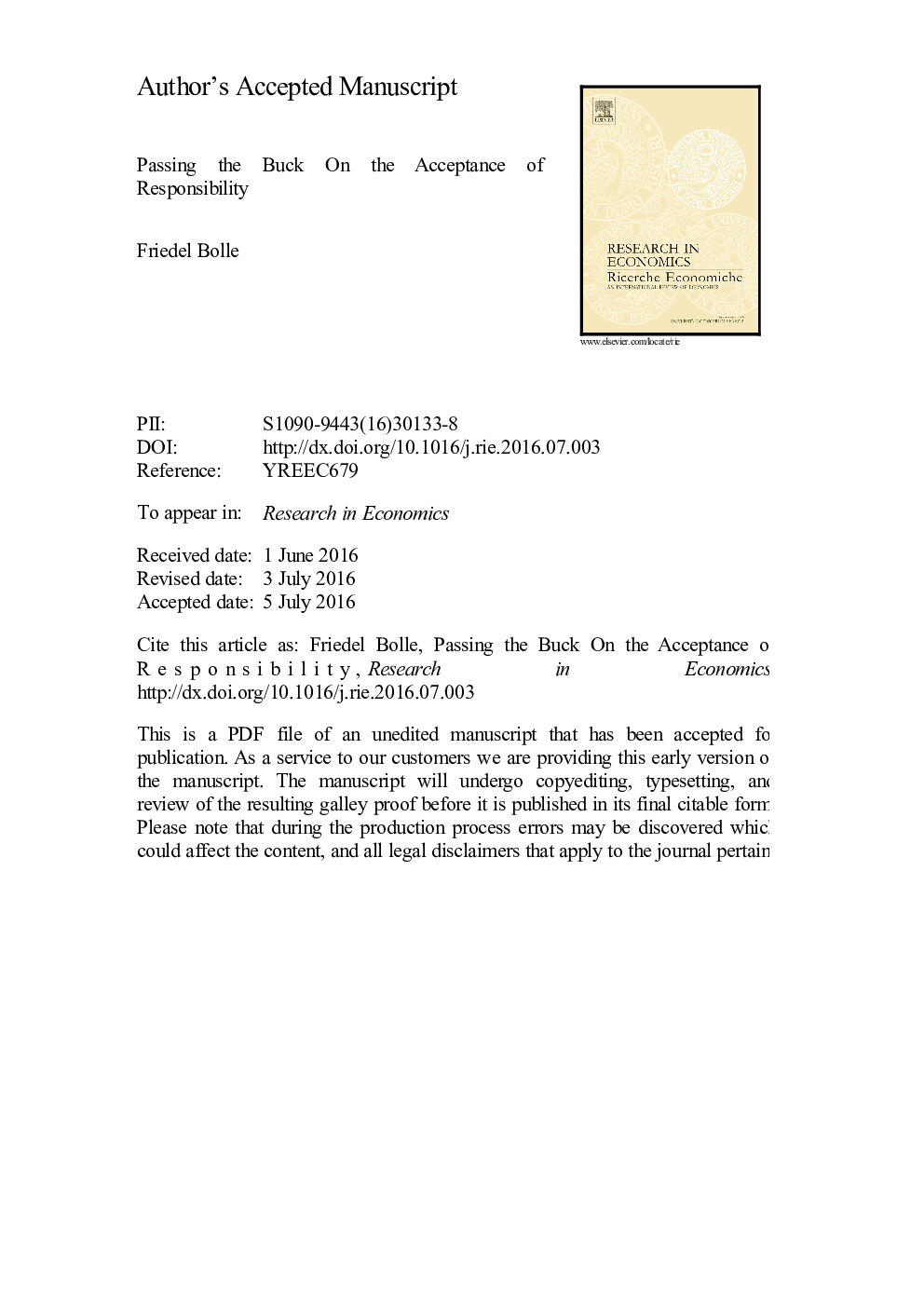| Article ID | Journal | Published Year | Pages | File Type |
|---|---|---|---|---|
| 5103791 | Research in Economics | 2017 | 29 Pages |
Abstract
In the Passing the Buck game, the n members of a group decide in a given order whether or not to incur costs so that they can fix a certain problem for the benefit of the group. Passing the Buck means that one relies on the service of a successor. The decision is influenced by social preferences and by strategic considerations. We derive three main conclusions from experiments with n=3 and n=4. (i) The unique perfect Baysian equilibrium of the Passing the Buck game with incomplete information about the preferences of other players generally fits the data, however with two interesting exceptions. (ii) Backward induction breaks down if it requires more than two steps, i.e., for the first player in the game with n=4. (iii) Making one of the members of the group an “expert” who alone is competent to fix the problem is connected with a change of social preferences.
Keywords
Related Topics
Social Sciences and Humanities
Economics, Econometrics and Finance
Economics and Econometrics
Authors
Friedel Bolle,
